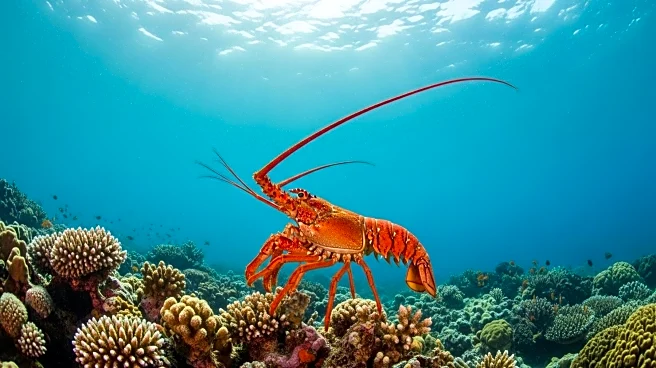What's Happening?
An ultra-rare orange lobster, named 'Jean-Clawd Van Dam,' was discovered in a New York supermarket and subsequently released back into the sea by the animal advocacy group Humane Long Island. The lobster, which is a 1-in-30-million find, was returned to the Long Island Sound to avoid being cooked or confined. Humane Long Island emphasizes the sensitivity and intelligence of lobsters, advocating against boiling them alive. The organization highlights the rarity of such lobsters and the importance of preserving them in their natural habitat. This event draws attention to the ethical considerations surrounding the treatment of lobsters and other aquatic animals.
Why It's Important?
The release of the orange lobster underscores the ethical concerns associated with the treatment of marine life, particularly in the food industry. Humane Long Island's actions reflect a growing movement towards more humane practices in handling aquatic animals. This incident raises awareness about the sentience of lobsters and the need for laws that protect them from inhumane treatment. It also highlights the importance of biodiversity and the preservation of rare species, contributing to broader conservation efforts.
Beyond the Headlines
The discovery and release of the orange lobster may inspire further discussions on animal rights and the ethical treatment of marine life. It could lead to increased advocacy for legislative changes that protect lobsters and other sea creatures from harmful practices. This event also serves as a reminder of the delicate balance between human consumption and wildlife conservation, encouraging more sustainable and ethical approaches to seafood sourcing.










